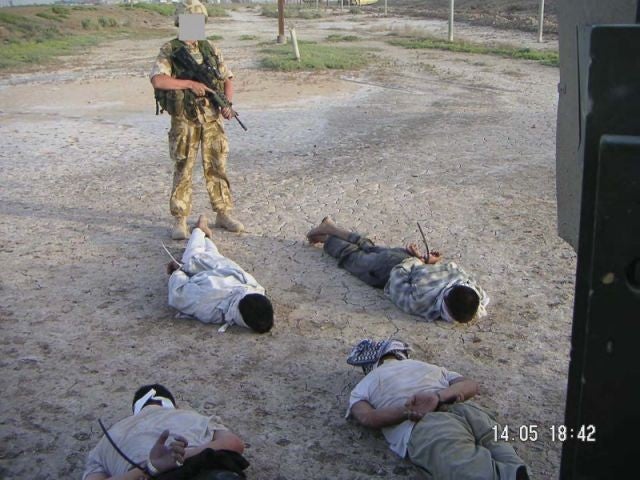Al-Sweady Inquiry: An exercise in greed that blights the lives of brave soldiers
Ambulance-chasing lawyers are damaging our armed forces

Your support helps us to tell the story
From reproductive rights to climate change to Big Tech, The Independent is on the ground when the story is developing. Whether it's investigating the financials of Elon Musk's pro-Trump PAC or producing our latest documentary, 'The A Word', which shines a light on the American women fighting for reproductive rights, we know how important it is to parse out the facts from the messaging.
At such a critical moment in US history, we need reporters on the ground. Your donation allows us to keep sending journalists to speak to both sides of the story.
The Independent is trusted by Americans across the entire political spectrum. And unlike many other quality news outlets, we choose not to lock Americans out of our reporting and analysis with paywalls. We believe quality journalism should be available to everyone, paid for by those who can afford it.
Your support makes all the difference.The Al-Sweady case was not an attempt to achieve justice but an act of “Lawfare” against the British state. Lawfare is the increasing systematic use of human rights laws, the laws of armed conflict and other legislation to undermine the capability of Western democracies to fight effectively in the 21st century.
The other motive of the conspirators in the Al-Sweady case was greed – greed on the part of the Iraqis for compensation.
The astronomical costs in this case – £24m – are only a fraction of what such claims from Iraq and Afghanistan cost the British taxpayer. And it is only one element of the damage done by this and similar cases.
These false, widely publicised, allegations of murder, abuse and torture against British soldiers have been used to incite hatred and stir up violence – and not just in Iraq. It is likely that they have aided terrorist recruitment and led to unnecessary loss of life.
Allegations of war crimes have hung over the heads of the soldiers in this case for 10 years. The violence of the assault in the ambush in 2004 that gave rise to the Al-Sweady investigation, and the courage and fighting spirit of the British soldiers involved, is demonstrated by the award of Military Crosses, high-level bravery awards, to Sergeant Major Falconer and Sergeant Wood.
These brave men, and the others involved, who volunteered to fight for their country, should not have been subjected to years of stress and uncertainty. There has been untold damage to their morale and that of their comrades.
Equally concerning is the wider impact on our armed forces. The cumulative effect of years of legal attack on our troops is to risk making both soldiers and commanders unnecessarily cautious in battle, endangering their lives and the lives of civilians that they have to protect.
This legal war of attrition is also steadily undermining the Government’s resolve and forcing Defence ministers to err on the side of extreme caution – a stance that usually ends in military defeat. Only this week we have seen new guidelines about interrogation techniques, which ban soldiers from intimidating prisoners even by shouting at them or thumping a table.
This level of control is not demanded by the Geneva Conventions and is unprecedented in the history of warfare. It removes the ability of battlefield commanders to gain valuable information in the immediate aftermath of capture. It will also endanger lives and reduce fighting effectiveness.
Everything possible should be done to prevent and deter future conspiracies against the armed forces. There are serious questions over the disclosure and destruction of a key document by some of the lawyers acting against the Government. These should be investigated vigorously, and if deliberate wrongdoing is uncovered, prosecutions should follow, not just professional censure. Alongside possible criminal action, the MoD should look to see whether some of the millions paid out to these lawyers can now be recovered.
Our policy on legal aid and over-generous compensation payments incentivises both complainants and lawyers, who actively search areas of conflict to encourage people to come forward with any accusations that can be dug up. This needs to be urgently reviewed.
Events this week in Pakistan, Afghanistan, Syria and Australia have shown the increasing bestiality and lack of restraint by our enemies. The only concern they have for the laws of war is how they can exploit our adherence to them. Our response is to increasingly shackle the armed forces. This must stop. We are fighting a different kind of war against a different kind of enemy in different circumstances and ministers and generals need to find a way to enable our troops to fight more, not less, effectively.
Colonel Richard Kemp served in Iraq and Afghanistan
Join our commenting forum
Join thought-provoking conversations, follow other Independent readers and see their replies
Comments